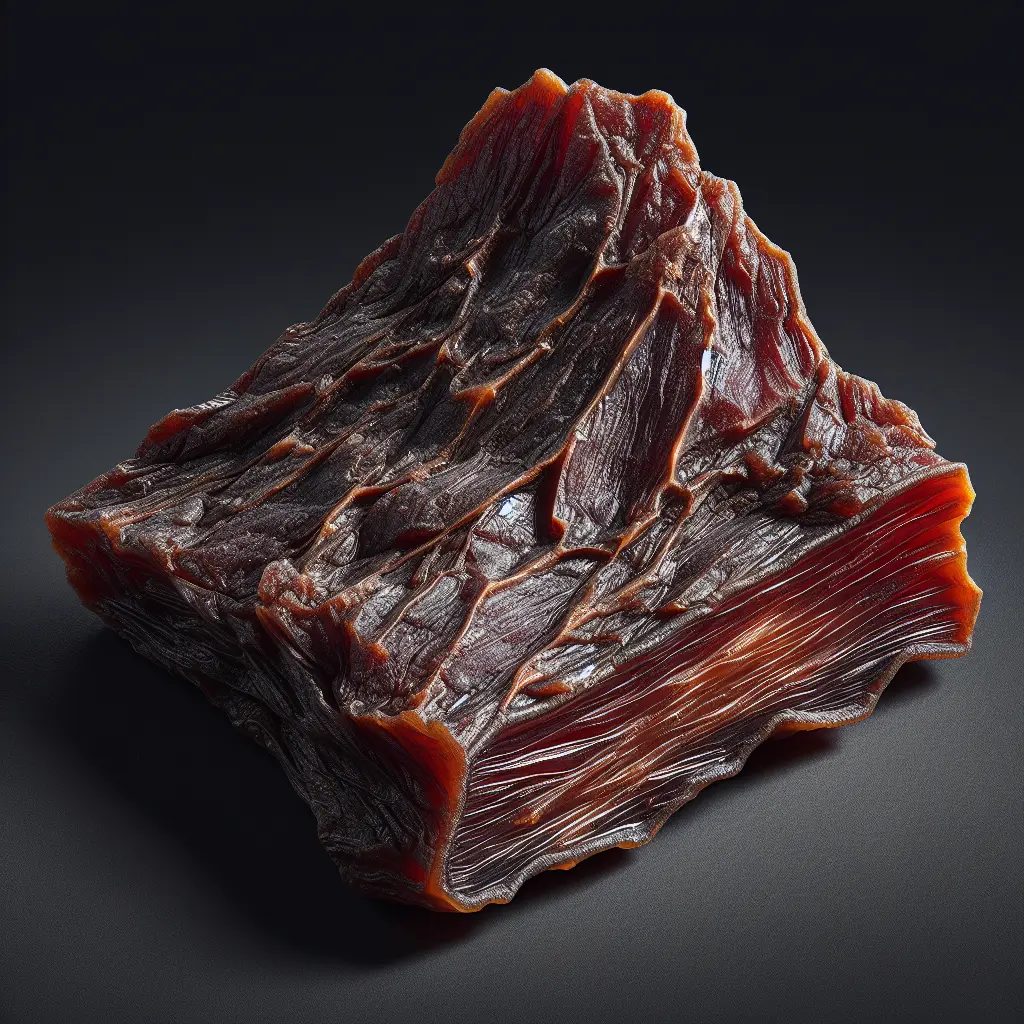Jerky: A Savory Journey Through Time
Jerky, a delectable treat known for its intense flavors and extended shelf life, has a rich history dating back centuries. Originating from the indigenous communities of North America, jerky was initially created as a means of preserving meat during hunting expeditions. Strips of lean meat were seasoned with natural herbs, spices, and salt, then dried under the sun or over a fire. This technique effectively removed moisture, inhibiting bacterial growth and allowing the meat to be stored for prolonged periods without spoilage.
Over time, jerky evolved into a culinary delicacy enjoyed by people from all walks of life. Today, it is crafted using a wide range of meats, including beef, venison, turkey, and even fish. The preparation methods have also diversified, with modern techniques such as dehydrators and ovens being employed alongside traditional open-air drying.
Nutritional Value: A Protein Powerhouse
Jerky is not only a tasty treat but also a nutritional powerhouse. Per serving, it offers a substantial amount of protein, essential for building and repairing tissues while promoting satiety. Additionally, jerky is a good source of several vitamins and minerals, including iron, zinc, and B vitamins.
The following table outlines the nutritional content of a large piece of jerky:
| Nutrient | Amount |
|---|---|
| Calories | 82 |
| Protein | 6.6 grams |
| Fat | 5.1 grams |
| Carbohydrates | 2.2 grams |
| Fiber | 0.4 grams |
| Sugar | 1.8 grams |
Health Implications: A Balanced Approach
While jerky can be a nutritious snack, it is important to consume it in moderation as part of a balanced diet. Here are a few considerations:
- Sodium Content: Jerky is often high in sodium, which can contribute to high blood pressure in some individuals. Opt for low-sodium varieties or limit portion sizes if you are concerned about sodium intake.
- Preservatives: Some commercial jerky products may contain preservatives such as nitrates or nitrites. While these preservatives help extend shelf life, they have been linked to certain health concerns. Choose brands that use natural preservatives or make your own jerky at home to minimize exposure.
- Allergens: Be sure to check the ingredient list for potential allergens, such as gluten or soy, if you have any dietary restrictions.
Conclusion
Jerky is a versatile and flavorful snack that can satisfy your cravings while providing essential nutrients. Whether you enjoy it as a quick bite on the go or as part of a balanced meal, this timeless treat is sure to tantalize your taste buds and nourish your body.
How many calories are in Jerky?
Each 1 piece, large of Jerky contains 82 calories.
Jerky Nutritional Information
| Nutrient | Amount per 1 piece, large (20g) |
|---|---|
| Calories | 82 Calories |
| Protein | 6.6g |
| Fat | 5.1g |
| Saturated Fat | 2.2g |
| Cholesterol | 0.0096mg |
| Carbohydrates | 2.2g |
| Dietary Fiber | 0.4g |
| Sugar | 1.8g |
| Sodium | 0.416mg |
| Potassium | 0.1194mg |
| Calcium | 0.004mg |
| Iron | 0.0011mg |
